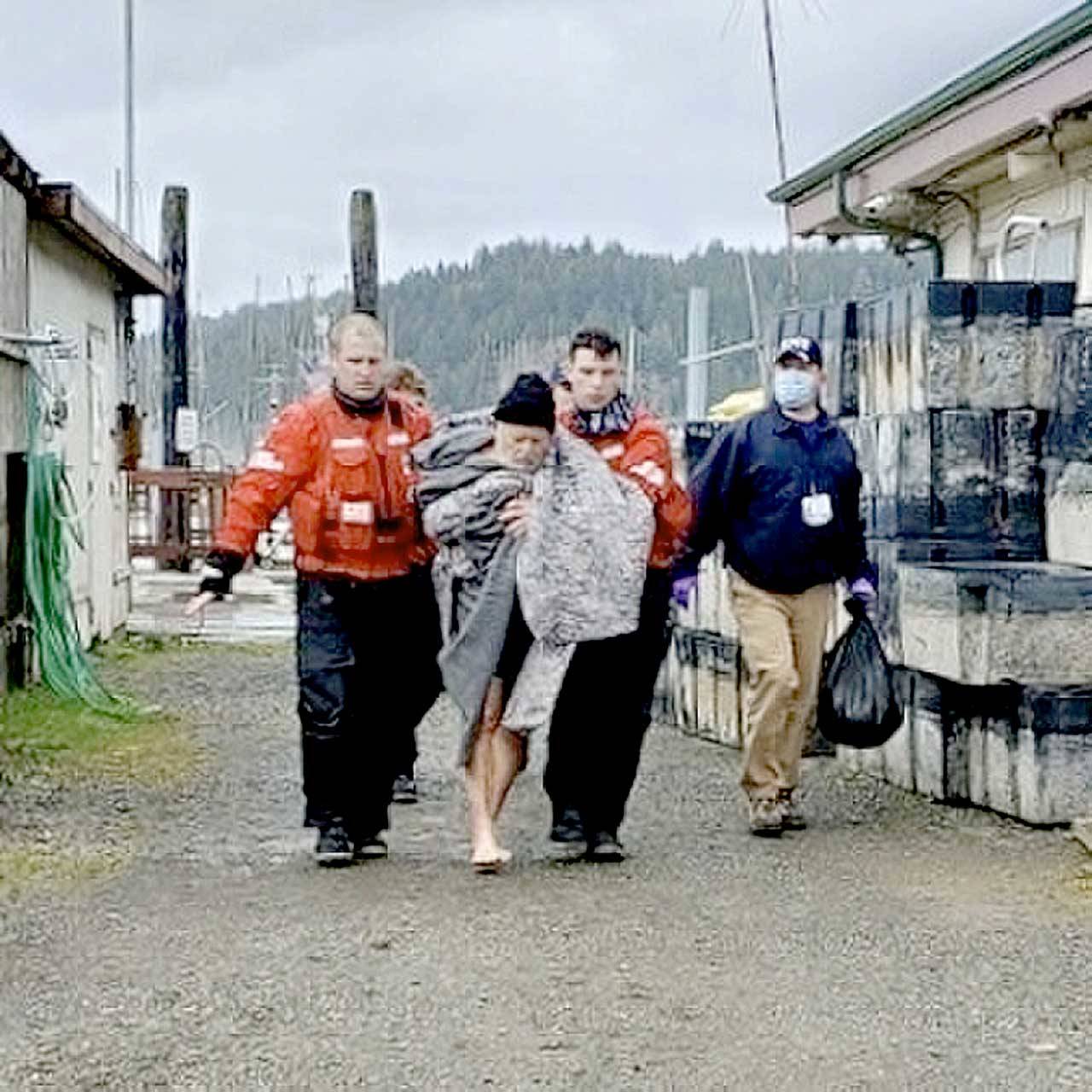LA PUSH — A Coast Guard helicopter flyover on Sunday found no sign of pollution after a recreational vessel loaded with fuel sank on Saturday, dunking three men into 8- to 10-foot seas.
A crew from Station Quillayute River safely plucked the men from the sea about 5 miles off the coast of La Push, said Petty Officer Steve Strohmaier of the Coast Guard’s 13th District on Sunday.
None were wearing life jackets. All suffered some degree of hypothermia after the soaking, with winds of 30 mph. They were taken to the Forks Community Hospital after they arrived in La Push at about 3:35 p.m., Strohmaier said.
The men are unidentified; the Coast Guard adheres to federal privacy law and also did not have their ages or hometowns. Hospitals will not release the condition of a patient unless a name can be provided, so their conditions on Sunday were unknown.
The three were traveling from Tacoma and had refueled somewhere on the North Olympic Peninsula, apparently headed for a destination in California, before the vessel sank with several hundred gallons of diesel fuel on board, said Strohmaier, who added the exact amount was unknown.
The Coast Guard was notified at 2:40 p.m. Saturday that the 48-foot boat was taking on water and beginning to sink. The report came from a man aboard the boat calling on VHF-FM radio channel-16 to ask for emergency assistance.
A Station Quillayute River 47-foot Motor Lifeboat crew was dispatched at 2:50 p.m. The crew spotted the men amid boat debris at 3:10 p.m.
Crew members pulled two of the men aboard the boat, but one man was working hard to stay afloat so a crew member jumped into the water to help him get into the rescue vessel, Strohmaier said.
Strohmaier did not know if life jackets were on board.
The sinking “sounds like it was pretty rapid,” he said.
A Coast Guard Air Station Port Angeles MH-65 Dolphin rescue helicopter crew launched at about 9 a.m. Sunday to examine the area for pollution that could endanger marine life.
“They did not locate any debris or any visible sheening,” Strohmaier said.
The wind and waves apparently scattered the debris or sent it to shore, he added.

